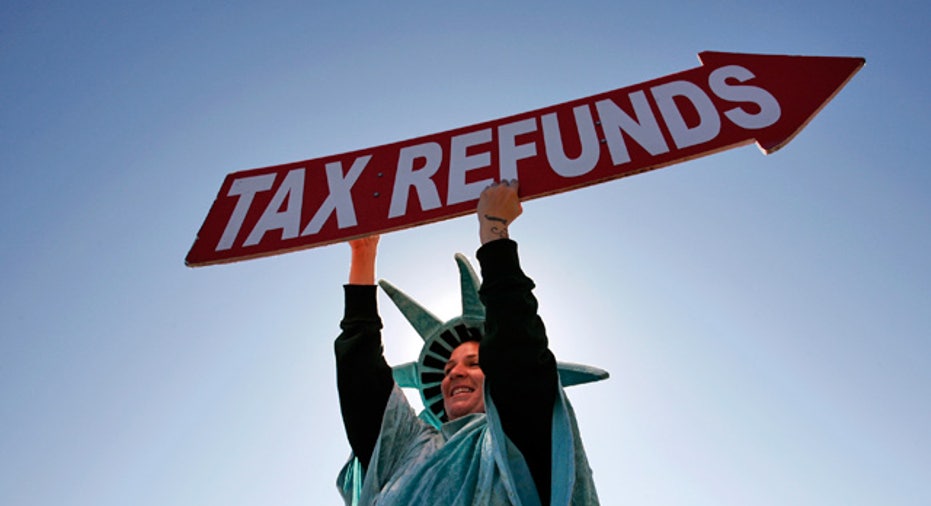What to Do With Your Tax Refund

Filing your taxes early provides a lot of advantages: It reduces the stress that comes with last-minute filing, can prevent tax return fraud (you get to it before the crooks do) and if you're getting a refund, you receive it sooner. And when that refund arrives, it can be oh-so exciting. What to do with that extra money? What to do, indeed.
Pay Off Debt
For people in debt, a tax refund can be a huge relief. If you're facing a pile of credit card debt that's racking up interest, applying your refund to the balance could help you eliminate or reduce your debt, not to mention help your credit scores. While carrying a balance itself is not detrimental to credit scores, doing so may leave you with a debt utilization ratio that's higher than you'd like.
The more of your available credit you use, the higher your debt usage -- one free tool that can help you figure that out is Credit.com's Credit Report Card, which will show you your outstanding revolving debt in relation to your overall credit limit.
In a recent Credit.com survey, 55% of respondents said they have some credit card debt, and more than half said it was extremely important to have a plan to start paying it down this year -- if you're among them, don't miss this opportunity to work toward your goal. Even if you can't pay off all your credit card debt with your tax refund, it could accelerate the process and help your credit scores in the meantime.
Save for the Future
Tax refunds have "Save Me" written all over them.
Put your refund into your retirement savings, and if you haven't yet started a 401K, IRA or something similar, this is the perfect time to start.
This can be especially helpful if you're behind on your retirement savings, because it allows you to put more away for the future without cutting into your day-to-day budget. Another savings account many people lack is the emergency fund: It's a good rule of thumb to have three to six months of income in your coffers, in case you lose your job or encounter an unexpected medical or repair expense. Saving may not sound as fun as buying a new gadget or refreshing your wardrobe, but if your future isn't a priority now, you'll regret your splurge later.
Make a Big, Necessary Purchase
Depending on how much your refund is, you may be able to buy something you need now that you were trying to save for or knew you would need to finance.
Maybe you're in need of a new car, and the refund can serve as the down payment. If old home appliances are using a lot of energy and resulting in high utility bills, this could be an opportunity to invest in energy efficient models without sacrificing other expenses.
Energy-efficient appliances will save you money in the long run, too. Choose wisely. If you spend your refund on something frivolous and find yourself without spare cash when your car breaks down or if you get sick, you may wish you had thought more carefully about the potential your tax refund held.
Read More From Credit.com
The Ultimate Guide to Managing Your Debt
How to Pay Off Credit Card Debt



















